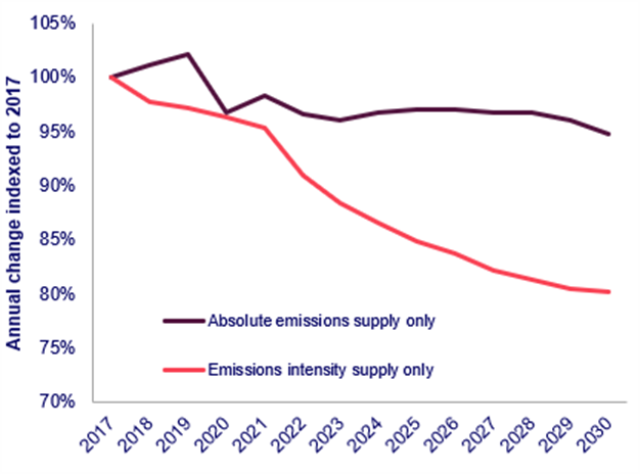
A recent report by Wood Mackenzie shows Scope 1 and 2 upstream emissions intensity is expected to decline by 12% since 2017. However, the report also warns that absolute emissions may plateau due to increased production.
Wood Mackenzie's analysis is titled “Is upstream oil and gas contributing to decarbonization?” He highlights significant progress in reducing emissions intensity through measures such as flaring reduction, methane detection and remediation, electrification, and carbon capture, utilization and storage (CCUS).
Despite these efforts, the report notes that increased production in certain regions may offset increases in emissions intensity. Considering the broader oil and gas value chain, absolute emissions are likely to exceed pre-pandemic levels by 2028.
Principal analyst Adam Pollard has stressed the need for more comprehensive action beyond addressing the “low-hanging fruit” of reducing emissions. “Flaring, methane and venting efforts show the potential for progress, but efforts need to move beyond the low hanging fruit,” Pollard said. He notes that while combustion emissions remain a major concern, progress in reducing emissions has been limited. The report suggests that electrification could lead to significant savings, especially in regions where low-carbon power sources are available.
Findings from Wood Mackenzie's Emissions Benchmarking Tool highlight the leadership role of majors and international oil companies (IOCs) in improving emissions intensity. Net-zero efforts are a key driver for these companies, along with increased regulation and carbon taxes.
However, national oil companies (NOCs) contribute significantly to upstream emissions, accounting for 51% of the total. Mr Pollard points out that not all his NOCs are following the lead of partner countries in implementing emissions reduction measures.
The report highlights the impact of “super emitters”, with half of the sector's emissions coming from just 165 oil and gas fields. These include persistent flarers, large Middle East oil fields, oil sands projects, and integrated LNG facilities.
Going forward, Pollard expects new developments to have lower-than-average emissions and companies to use mergers and acquisitions (M&A) to optimize their portfolios with greener assets.
However, he emphasizes that many companies and governments are still lagging behind in efforts to reduce emissions. Mr Pollard urges his stakeholders to set goals, develop decarbonization strategies, build on existing efforts and learn from the successes of industry-leading companies.


